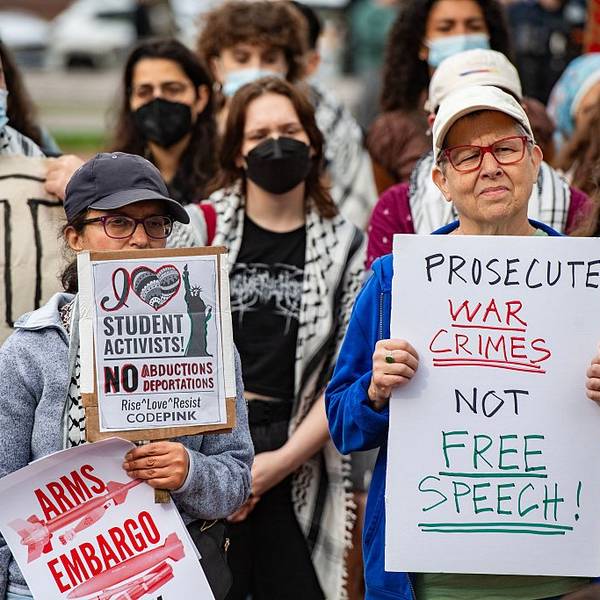It is, of course, very difficult to choose the single most extreme episode of misleading American media propaganda, but if forced to do so, coverage of the February, 2011 Tahrir Square demonstrations in Egypt would be an excellent candidate. For weeks, U.S. media outlets openly positioned themselves on the side of the demonstrators, depicting the upheaval as a Manichean battle between the evil despot Hosni Mubarak's "three decades of iron rule" and the hordes of ordinary, oppressed Egyptians inspirationally yearning for American-style freedom and democracy.
Almost completely missing from this feel-good morality play was the terribly unpleasant fact that Mubarak was one of the U.S. Government's longest and closest allies and that his "three decades of iron rule" -- featuring murder, torture and indefinite detention for dissidents -- were enabled in multiple ways by American support.
Throughout Mubarak's rule, the U.S. fed his regime an average of $2 billion each year, most of which was military aid. The tear gas cannisters shot at protesters by Mubarak's police bore "Made in U.S.A." labels. A 2009 diplomatic cable published by WikiLeaks noted that "Egyptian democracy and human rights efforts ... are being stymied" but described the benefits received by U.S. from support for the regime: "Egypt remains at peace with Israel, and the U.S. military enjoys priority access to the Suez Canal and Egyptian airspace." Another 2009 cable put it more bluntly: "the Egyptians appear more willing to confront the Iranian surrogates and to work closely with Israel."
That same year, Hillary Clinton pronounced: "I really consider President and Mrs. Mubarak to be friends of my family." Another WikiLeaks cable, anticipating the first meeting between Obama and Mubarak in 2009, emphasized that "the Administration wants to restore the sense of warmth that has traditionally characterized the U.S.-Egyptian partnership" and that "the Egyptians want the visit to demonstrate that Egypt remains America's 'indispensible [sic] Arab ally.'" The cable dryly noted that "[intelligence] Chief Omar Soliman and Interior Minister al-Adly keep the domestic beasts at bay, and Mubarak is not one to lose sleep over their tactics." The Obama administration supported Mubarak right up to the point where his demise was inevitable, and even then, plotted to replace him with Soliman: an equally loyal and even more brutal autocrat, most appreciated in Washington circles for helpfully torturing people on behalf of the Americans.
Read the full article at The Intercept



